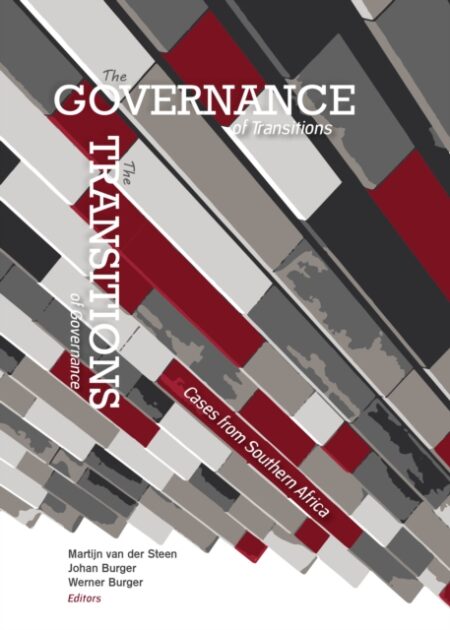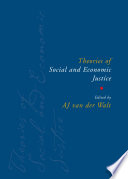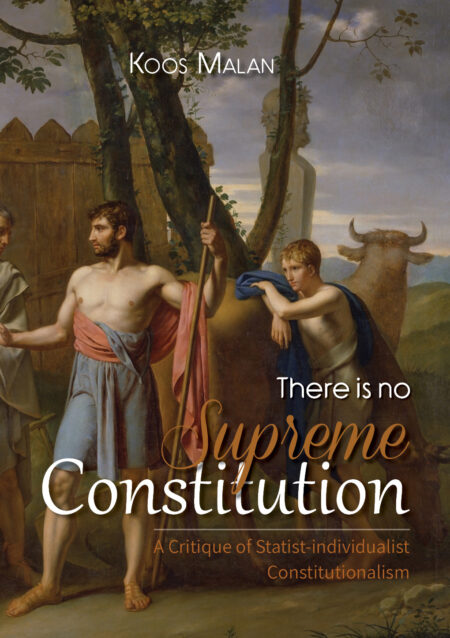-

The Governance of Transitions – The Transitions of Governance
0R315,00Why is societal transition not simply a matter of change management or normal policy design? South Africa is living proof of the ability of a society to reinvent and reinstall itself. With the advent of new societal challenges, came the need for real societal innovation, especially in sectors where it was never deemed necessary or possible before. This book asks: What type of governance is helpful for developing new societal institutions and systems that can overcome systemic crises in emerging economies and fragile communities? What emerges is a compilation of chapters that introduce different parts of a solution which can be used in developing both a growing body of practices of ‘governed’ societal transitions and the associated transition of governance. The Governance of Transitions – The Transitions of Governance, in part, aims to provide building blocks which government and society could use to develop strategies for creating sustainable outcomes. It considers what kind of leadership, organisation or methods for accountability enable new types of governance and what the most important barriers are.
Print: View Print Version
-

The Governance of Transitions – The Transitions of Governance
0R395,00Why is societal transition not simply a matter of change management or normal policy design? South Africa is living proof of the ability of a society to reinvent and reinstall itself. With the advent of new societal challenges, came the need for real societal innovation, especially in sectors where it was never deemed necessary or possible before. This book asks: What type of governance is helpful for developing new societal institutions and systems that can overcome systemic crises in emerging economies and fragile communities? What emerges is a compilation of chapters that introduce different parts of a solution which can be used in developing both a growing body of practices of governed societal transitions and the associated transition of governance. The Governance of Transitions ? The Transitions of Governance, in part, aims to provide building blocks which government and society could use to develop strategies for creating sustainable outcomes. It considers what kind of leadership, organisation or methods for accountability enable new types of governance and what the most important barriers are.
eBook: View eBook Version
-

The Humanist Imperative in South Africa
0R0,00This book is an outcome of the conversation that occurred during the five days of intense discussion at two symposia initiated by the New Humanism Project.
The struggle for a more humane society is both local and universal, and increasingly these are connected in our time. So while the conversation focused specifically on South Africa, the discussion was neither parochial nor insular in its scope and character. Hopefully, then, people beyond South Africa will find the contents of this book of value for them in terms of their own contexts.
Print: View Print Version
-

Theories of Social and Economic Justice
0R340,00EThe bulk of the contributions in this publication originated in a research project initiated by the Stellenbosch Institute for Advanced Study (STIAS) in 2002.
The book is based on the idea that the attainment of greater social and economic justice, specifically in the South African context, is strongly influenced by the implications and the coherence of various theories of social and economic justice.
-

There is no Supreme Constitution
0R330,00None of the articles of faith of the South African Constitution is plausible. The Constitution is not supreme and entrenched. Subject to potent socio-political forces it changes continuously and often profoundly regardless of stringent amendment requirements. The trite threefold separation of powers is more metaphorical than real and therefore unable to secure effective checks and balances. Though institutionally separated with their own personnel and functions, the three powers are ordinarily integrated in a single dominant political leadership, committed to achieving the same ideological goals. The bill of individual rights cannot guarantee justice, because rights are subject to the ideologically-driven exercise of judicial interpretation, often with damaging consequences for those relying on the bill of rights. This situation does not only apply to South Africa, but to all Constitutions premised on the same articles of faith, in this book described as the doctrine of statist-individualist constitutionalism. An improved mode of constitutionalism is called for – one which is equipped with a sounder system of checks and balances and better endowed towards the achievement of justice through a balanced constitution.
Print: View Print Version
-

There is no Supreme Constitution
0R410,00None of the articles of faith of the South African Constitution is plausible. The Constitution is not supreme and entrenched. Subject to potent socio-political forces it changes continuously and often profoundly regardless of stringent amendment requirements. The trite threefold separation of powers is more metaphorical than real and therefore unable to secure effective checks and balances. Though institutionally separated with their own personnel and functions, the three powers are ordinarily integrated in a single dominant political leadership, committed to achieving the same ideological goals. The bill of individual rights cannot guarantee justice, because rights are subject to the ideologically-driven exercise of judicial interpretation, often with damaging consequences for those relying on the bill of rights. This situation does not only apply to South Africa, but to all Constitutions premised on the same articles of faith, in this book described as the doctrine of statist-individualist constitutionalism. An improved mode of constitutionalism is called for – one which is equipped with a sounder system of checks and balances and better endowed towards the achievement of justice through a balanced constitution.
eBook: View eBook Version
-

Towards Good Order at Sea
0R365,00The problems originating from the resultant ?bad order at sea? can be directly felt on land, when smuggling, terrorism and related criminal activities operate more or less unhindered. The book provides an important mapping of the challenges preventing good order at sea off the African coast and East Africa in particular. – Rear Admiral N. Wang, Commandant Royal Danish Defence College
-

Whose History Counts
0R235,00Originally planned as a fact-based book on the pre-colonial history of the Eastern Cape in the true tradition of history, this ground-breaking book focuses on epistemological and foundational questions about the writing of history and whose history counts. Whose History Counts challenges the very concept of pre-colonial and explores methodologies on researching and writing history.
Print: View Print Version


